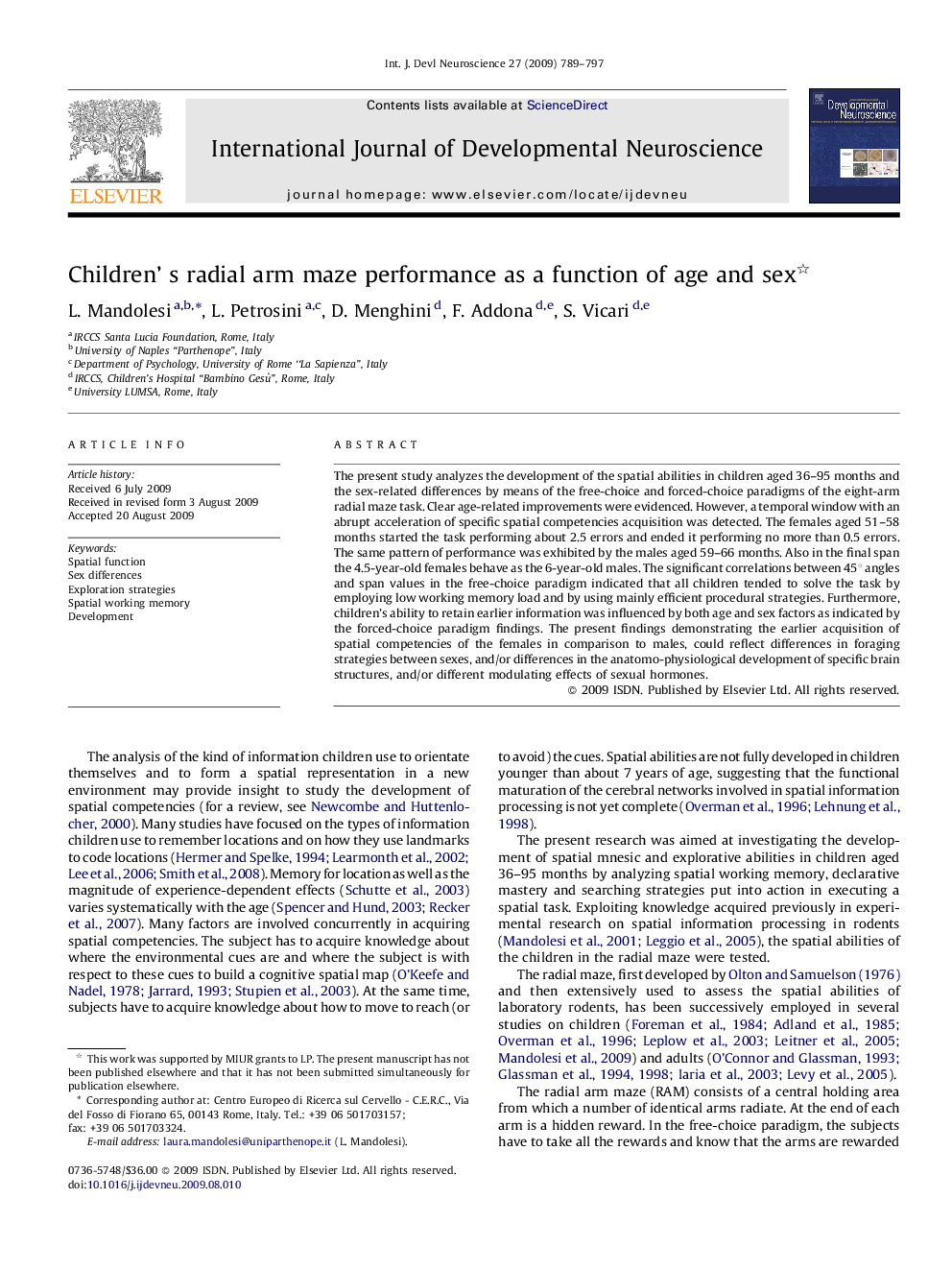| Article ID | Journal | Published Year | Pages | File Type |
|---|---|---|---|---|
| 2786904 | International Journal of Developmental Neuroscience | 2009 | 9 Pages |
The present study analyzes the development of the spatial abilities in children aged 36–95 months and the sex-related differences by means of the free-choice and forced-choice paradigms of the eight-arm radial maze task. Clear age-related improvements were evidenced. However, a temporal window with an abrupt acceleration of specific spatial competencies acquisition was detected. The females aged 51–58 months started the task performing about 2.5 errors and ended it performing no more than 0.5 errors. The same pattern of performance was exhibited by the males aged 59–66 months. Also in the final span the 4.5-year-old females behave as the 6-year-old males. The significant correlations between 45° angles and span values in the free-choice paradigm indicated that all children tended to solve the task by employing low working memory load and by using mainly efficient procedural strategies. Furthermore, children's ability to retain earlier information was influenced by both age and sex factors as indicated by the forced-choice paradigm findings. The present findings demonstrating the earlier acquisition of spatial competencies of the females in comparison to males, could reflect differences in foraging strategies between sexes, and/or differences in the anatomo-physiological development of specific brain structures, and/or different modulating effects of sexual hormones.
